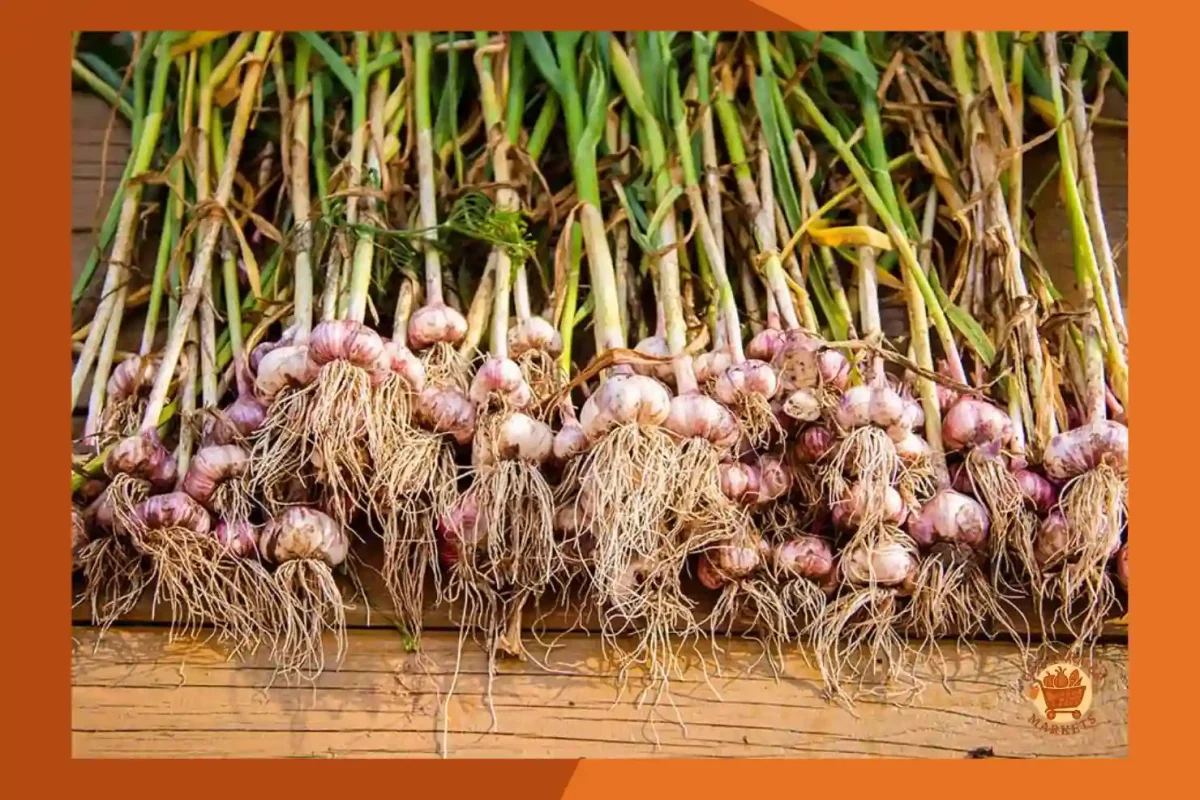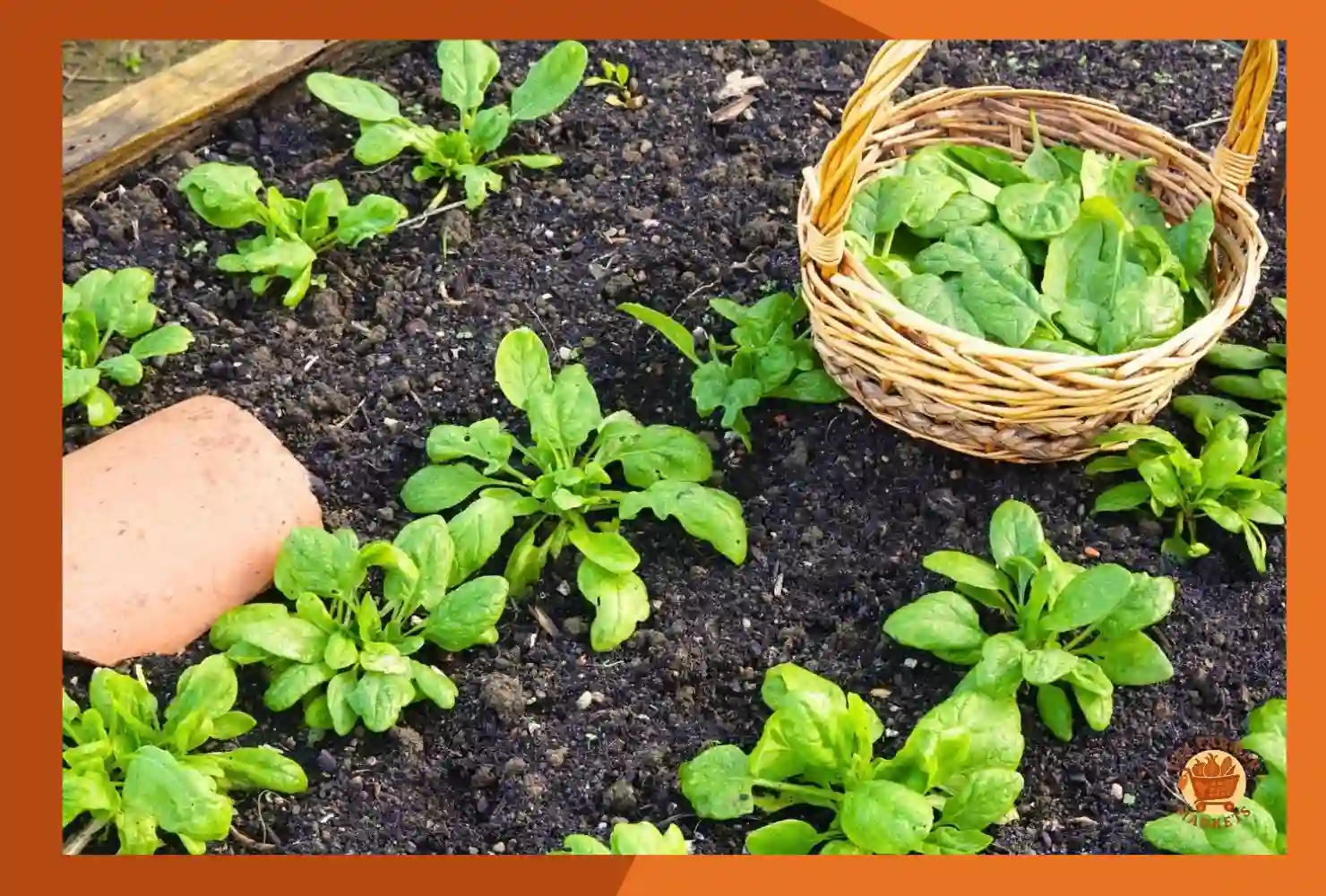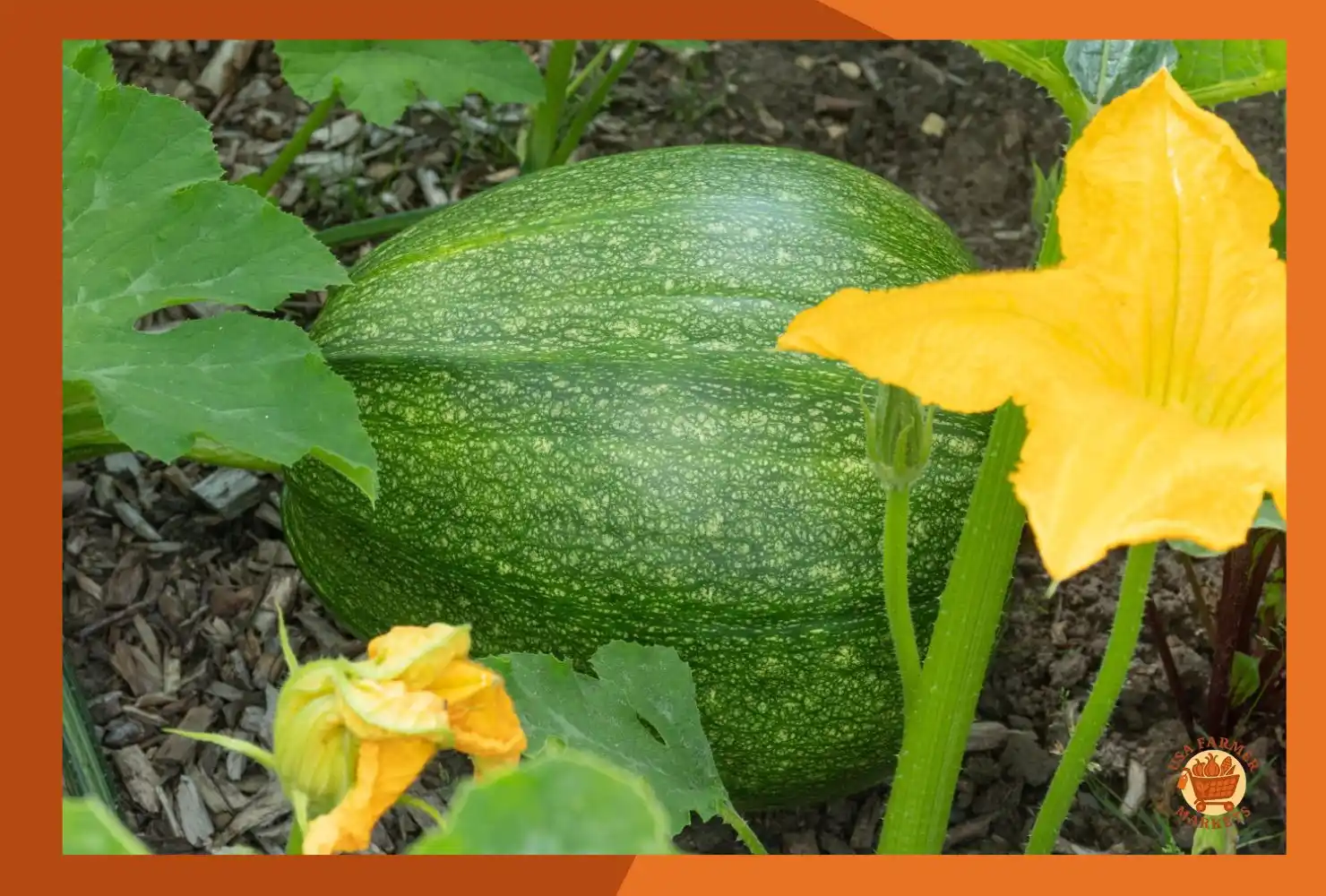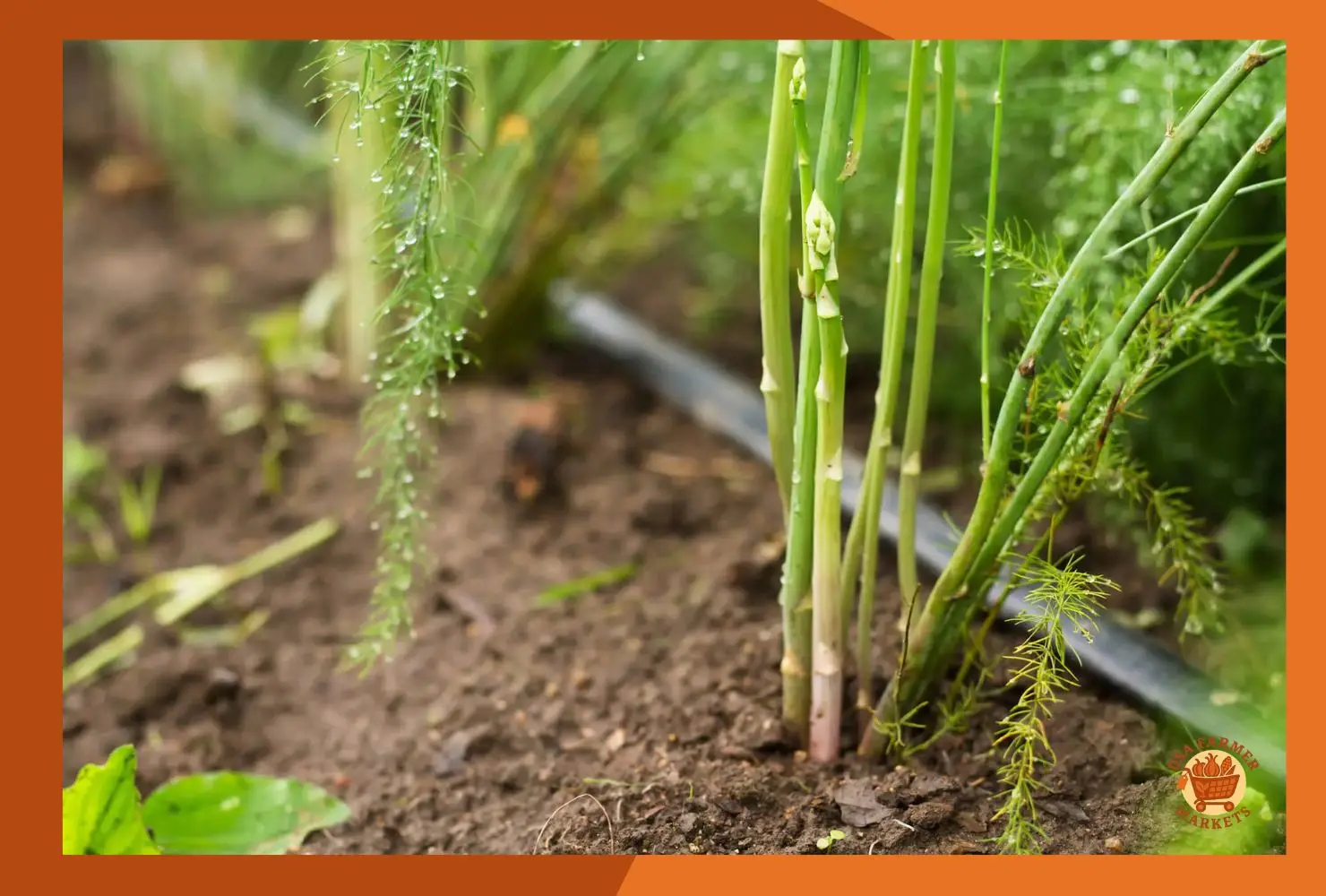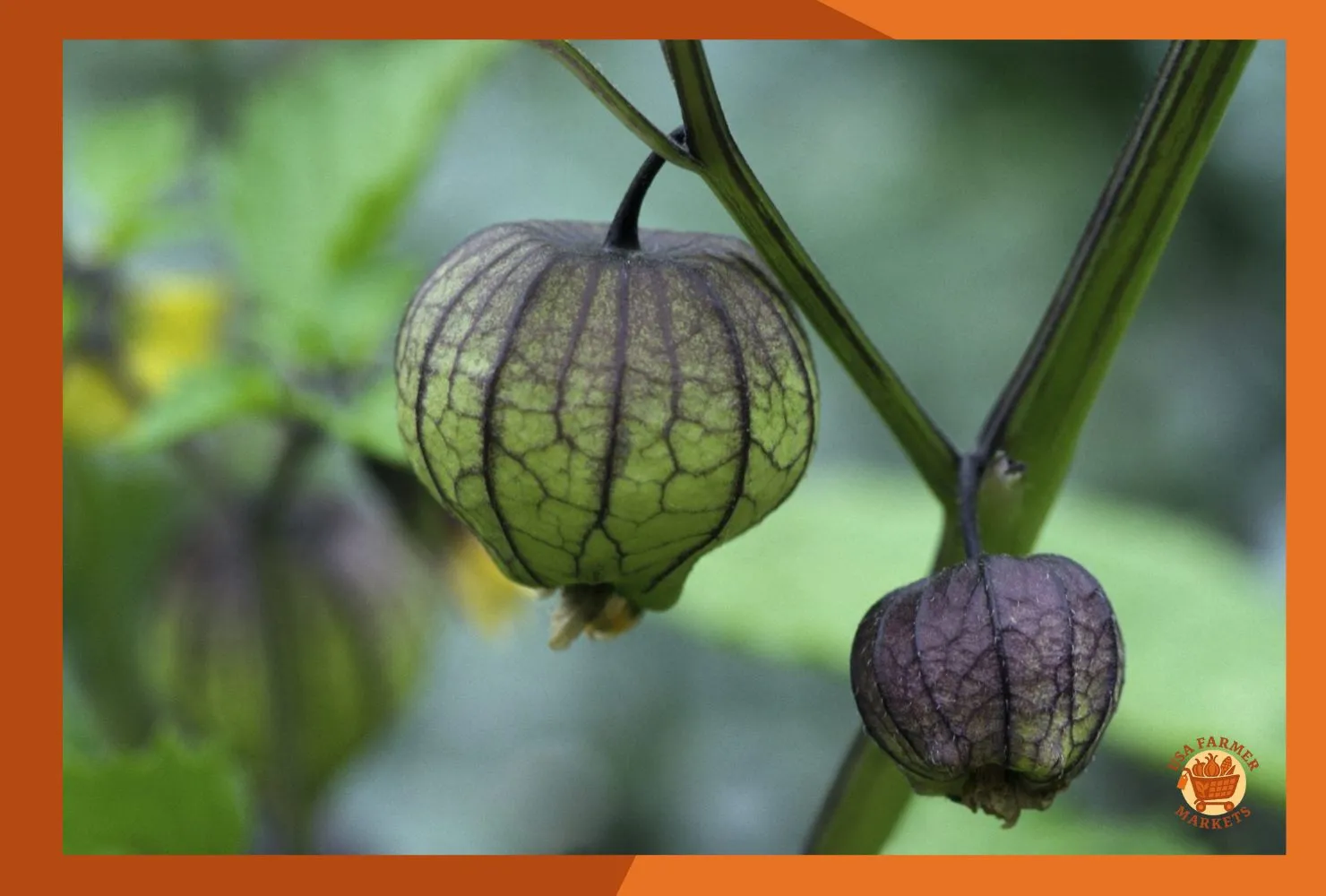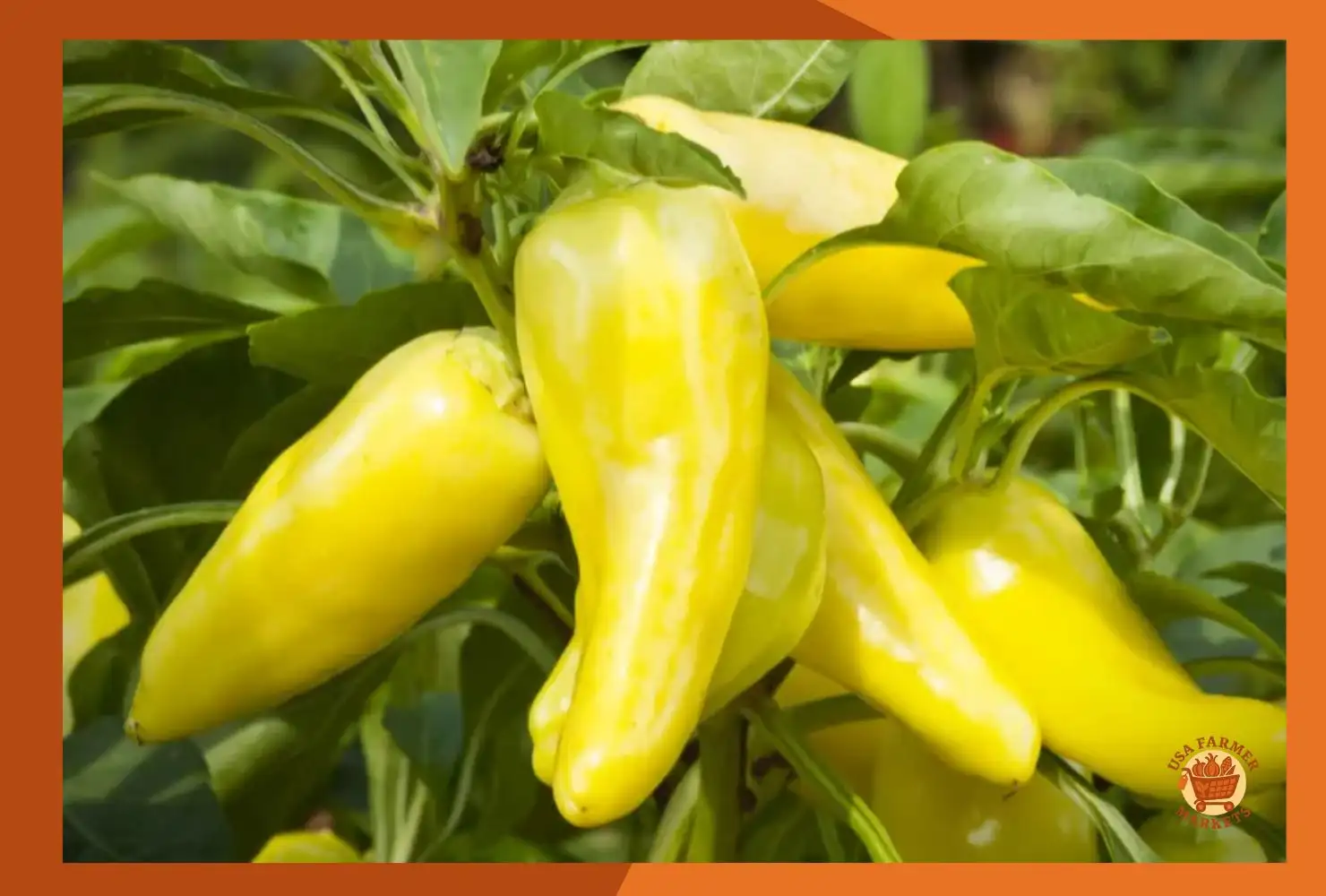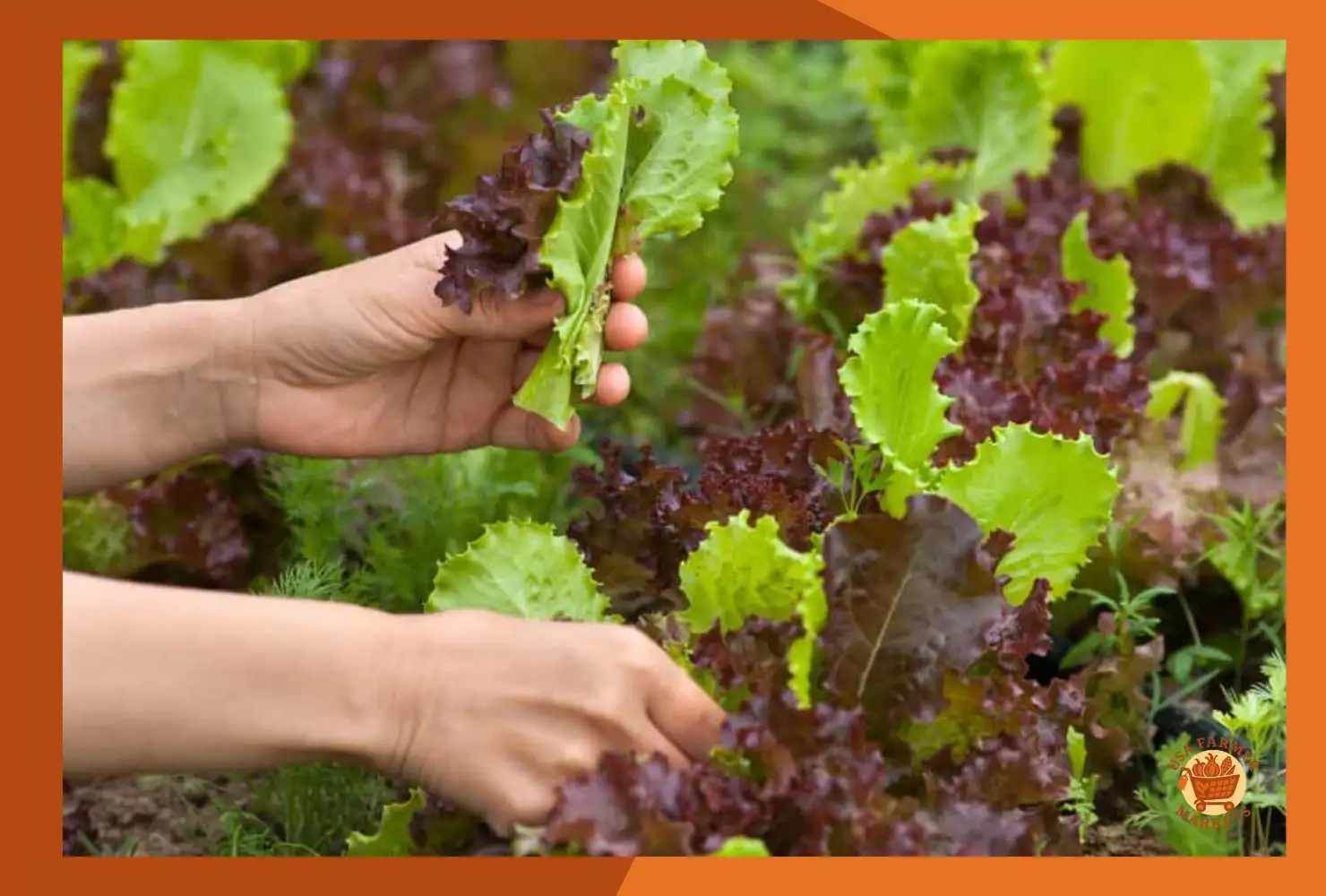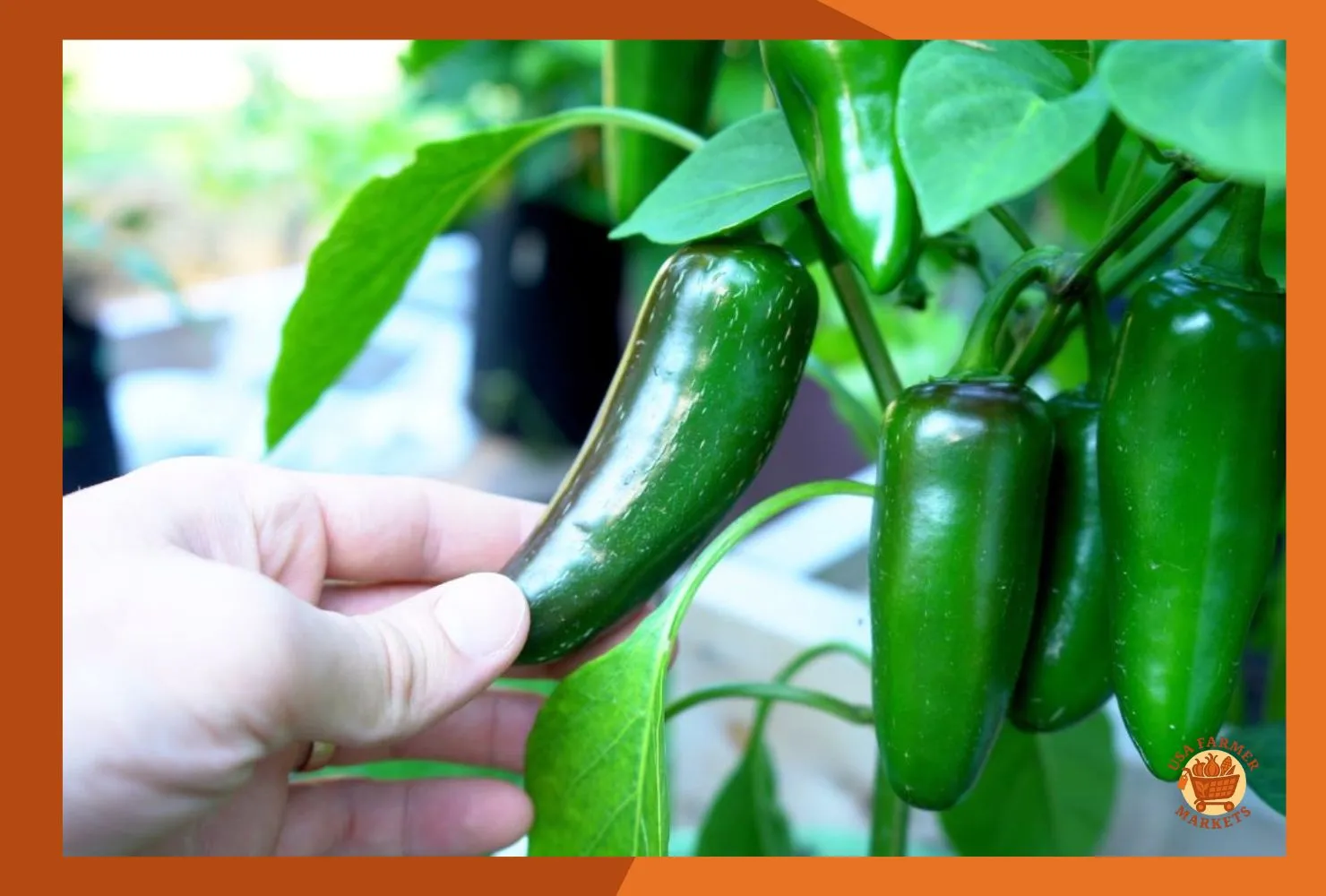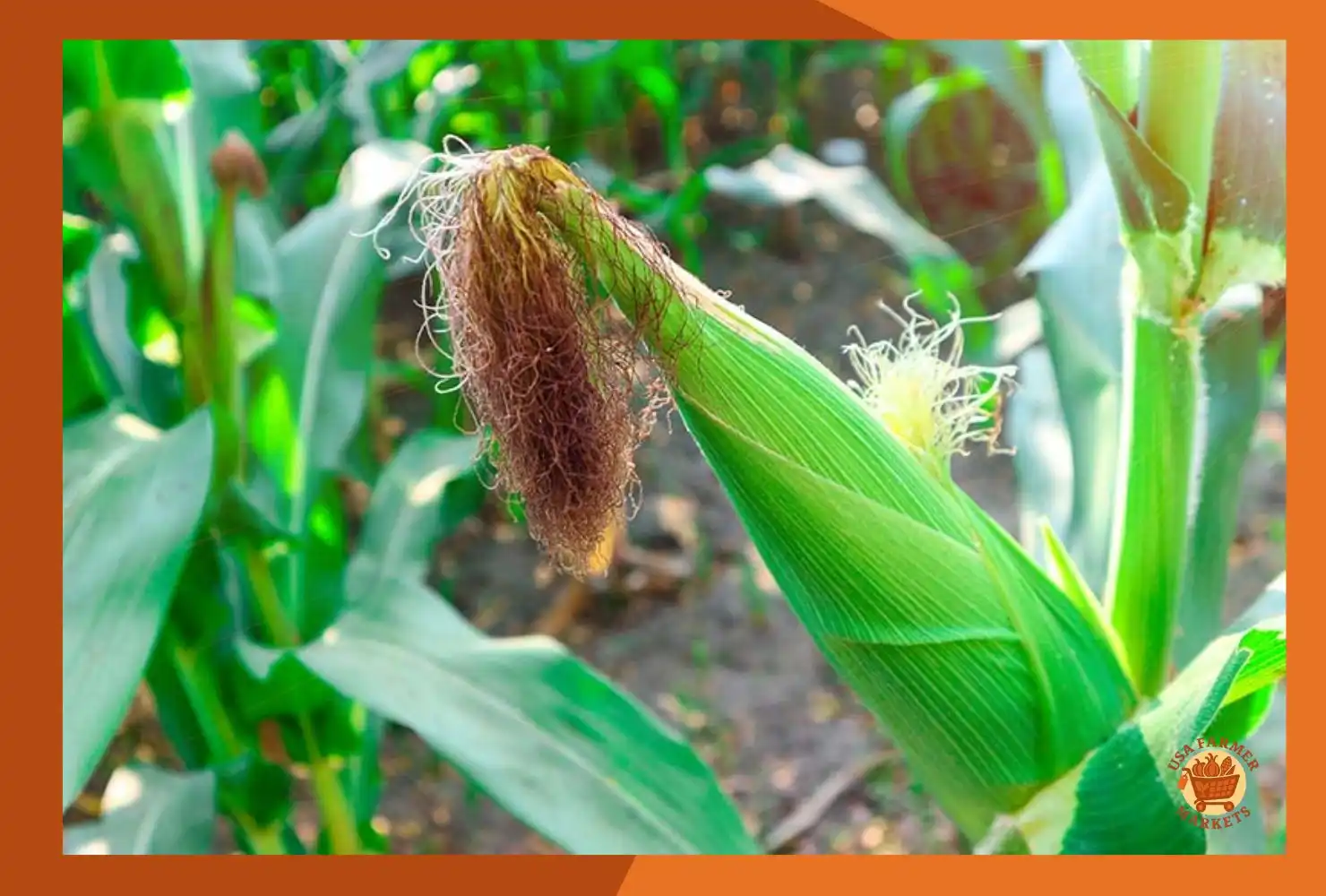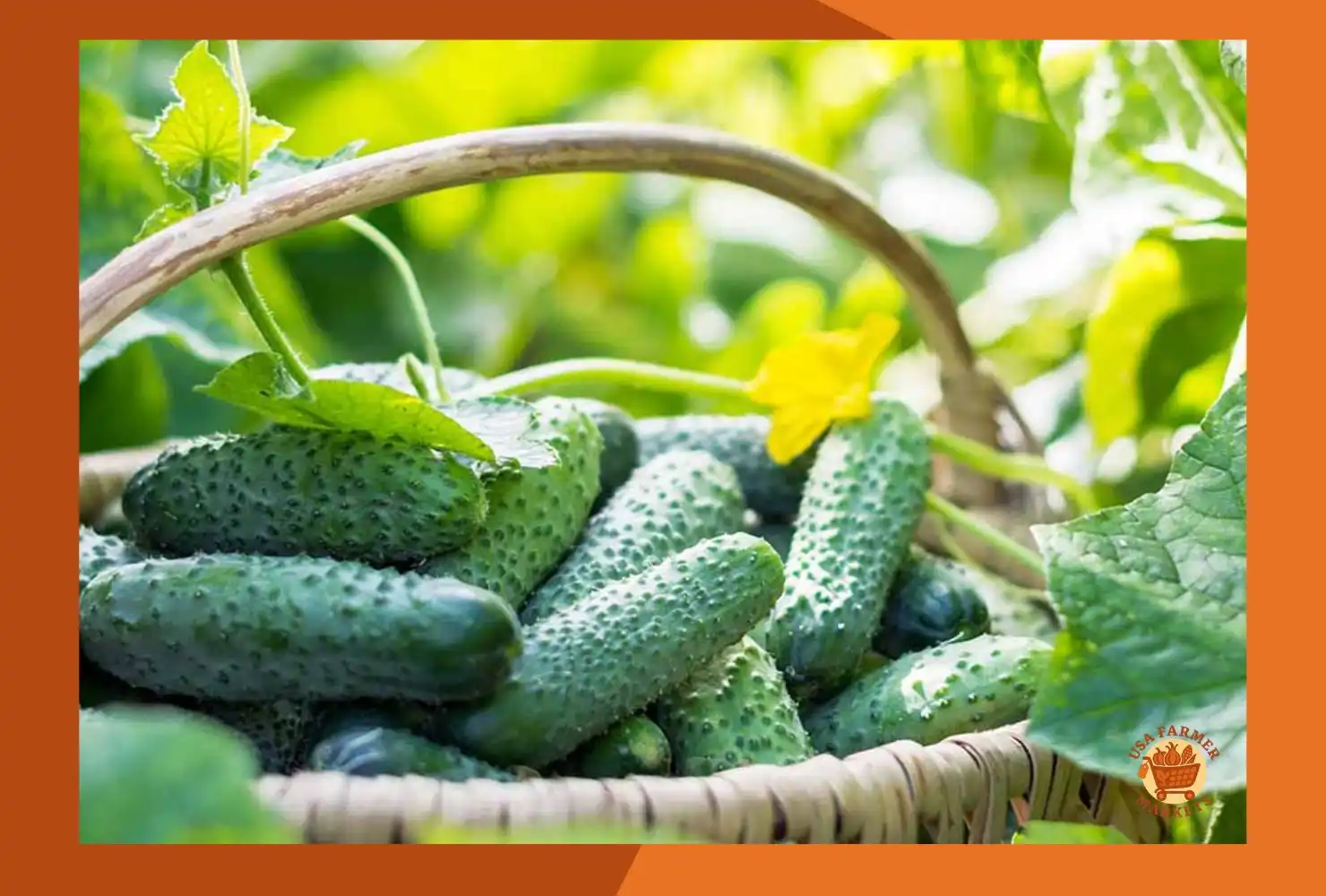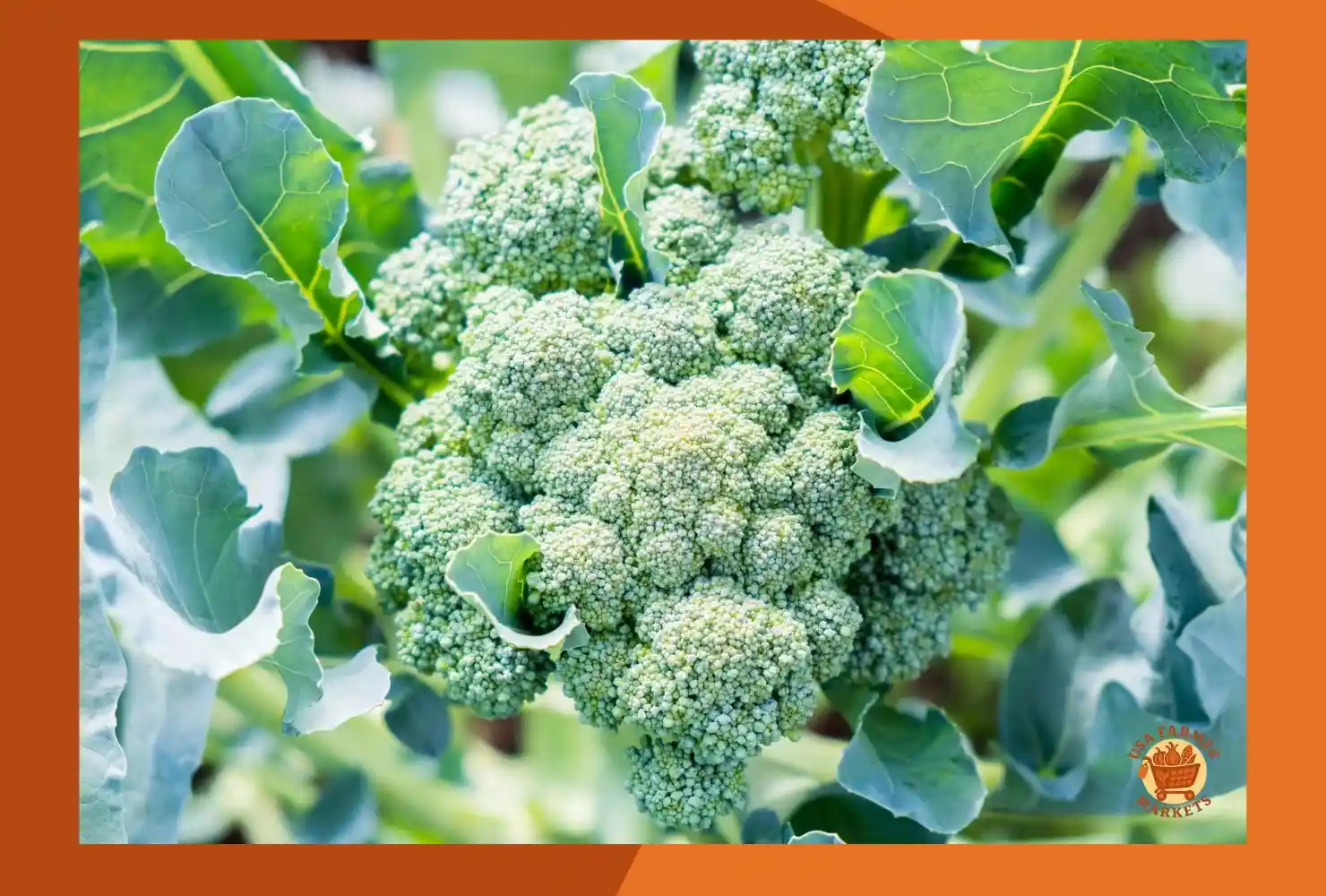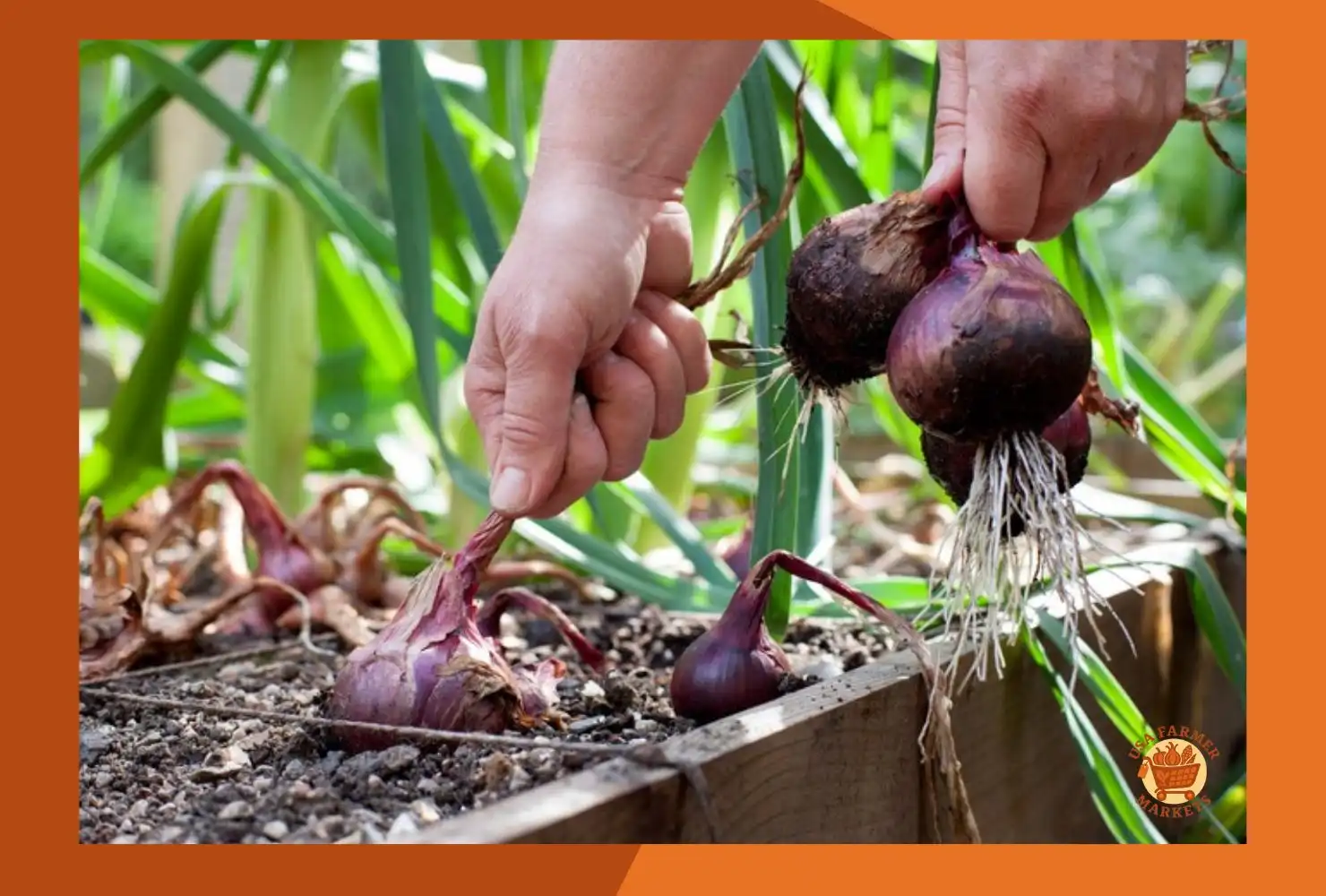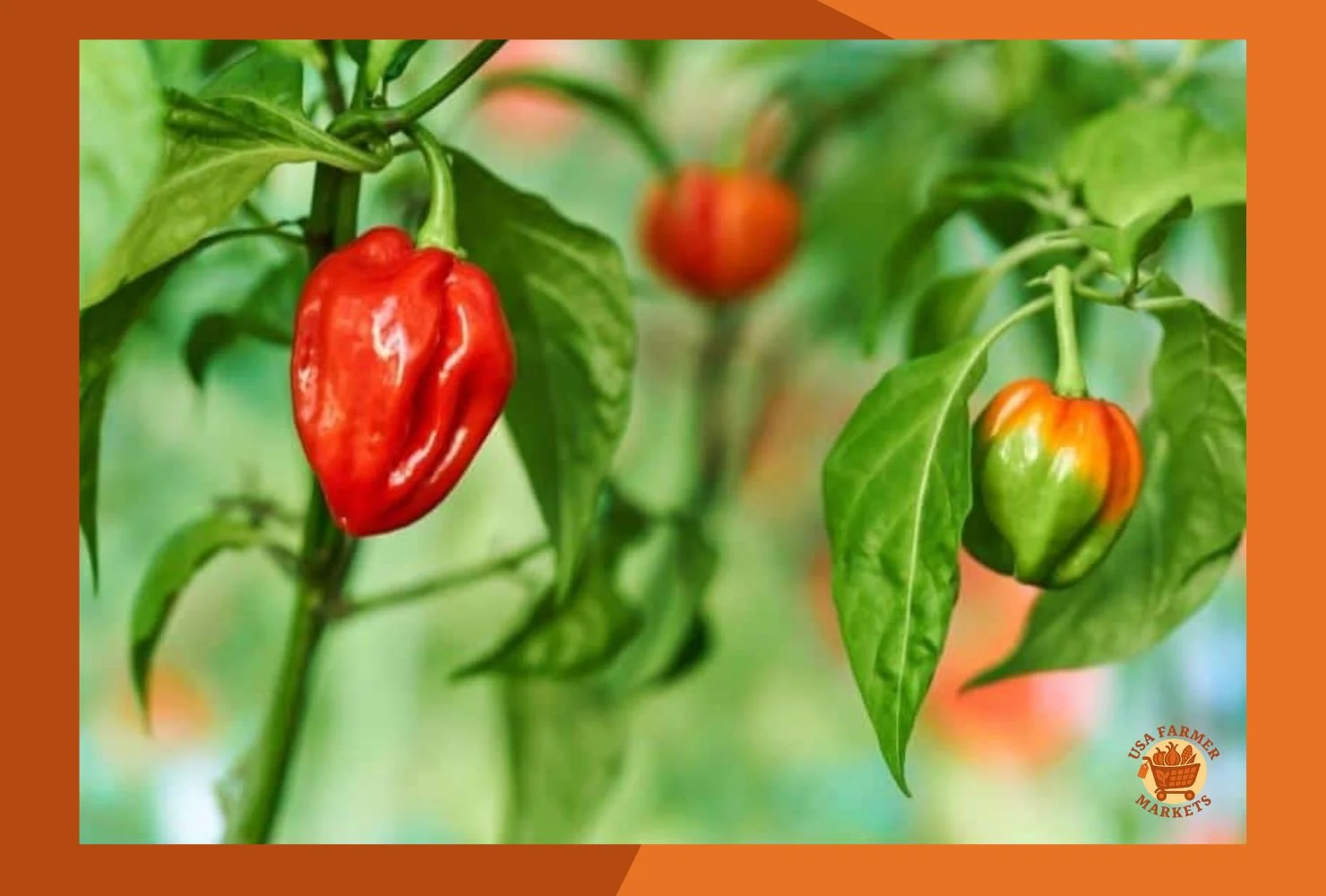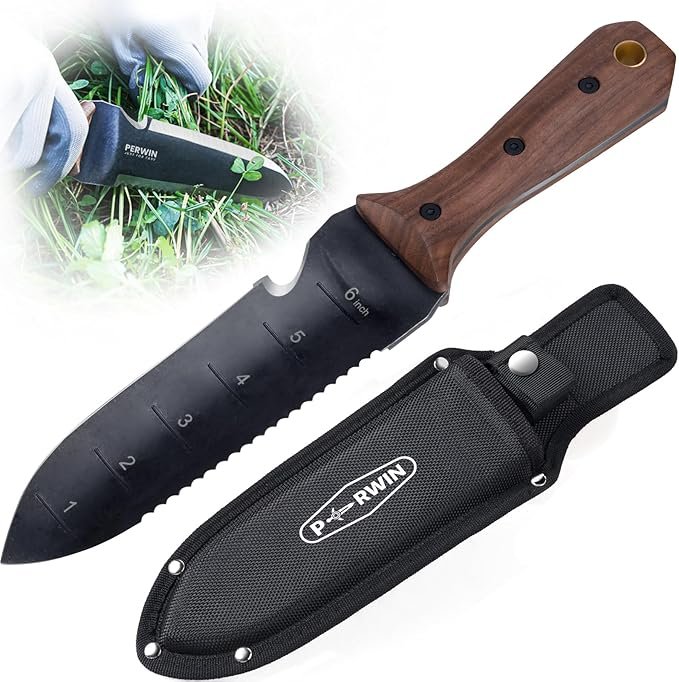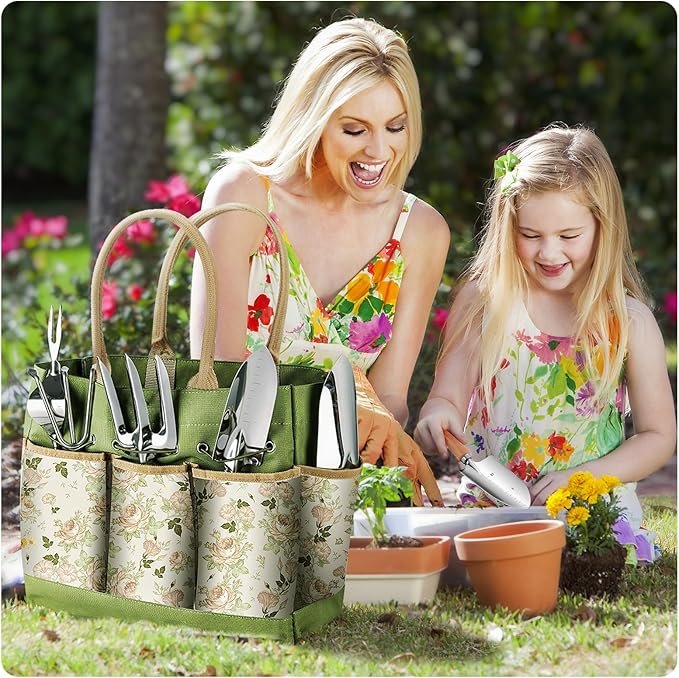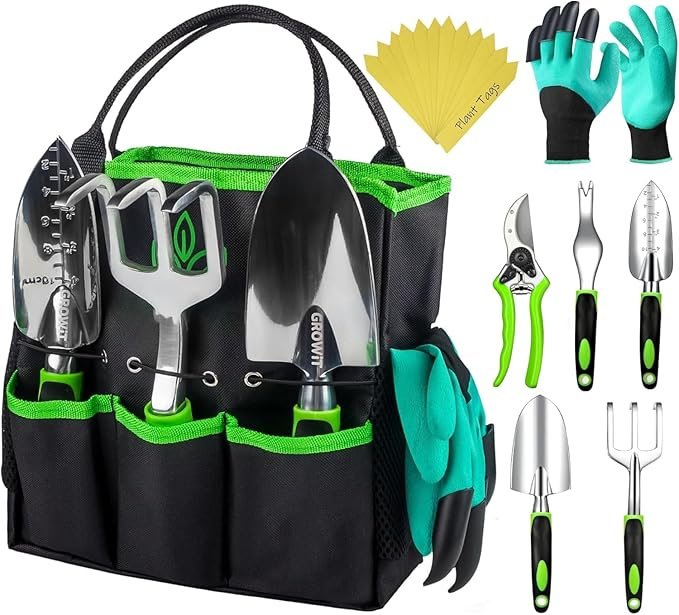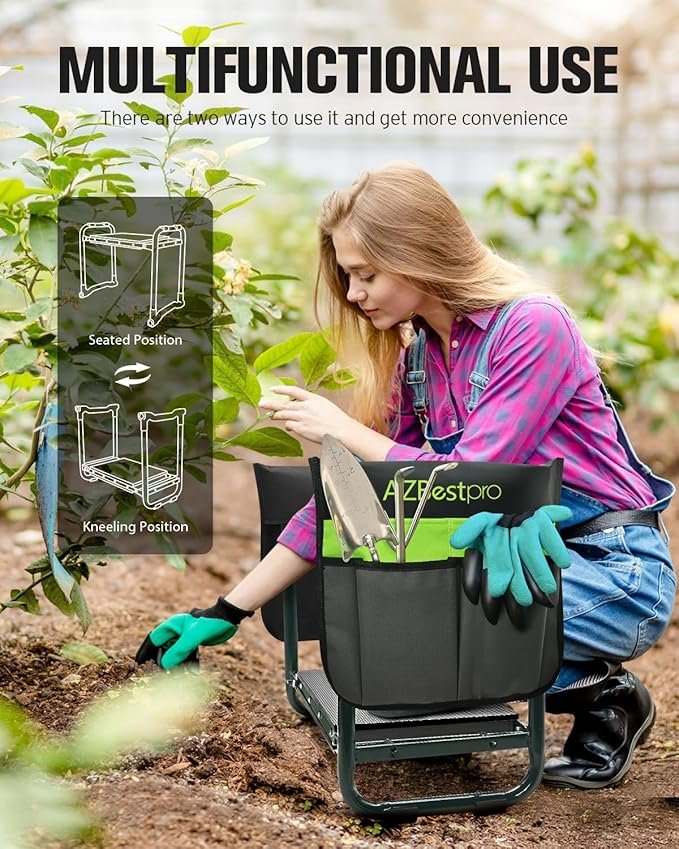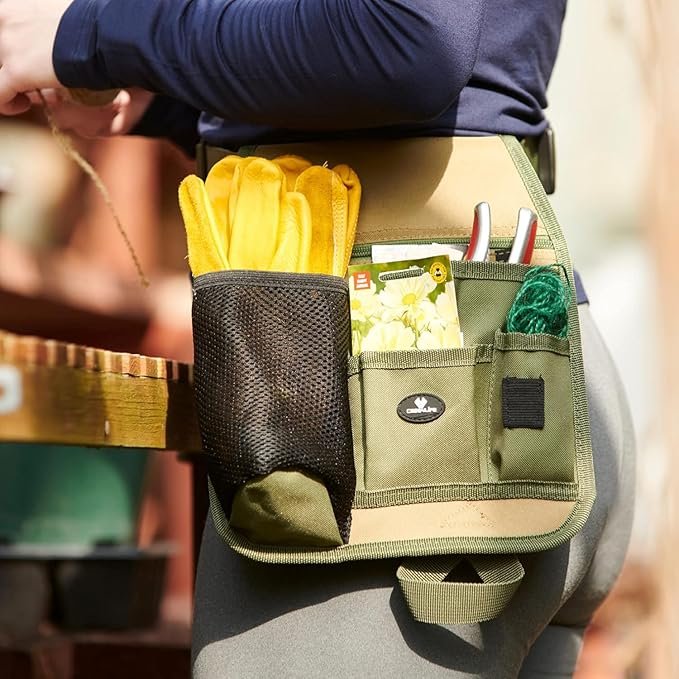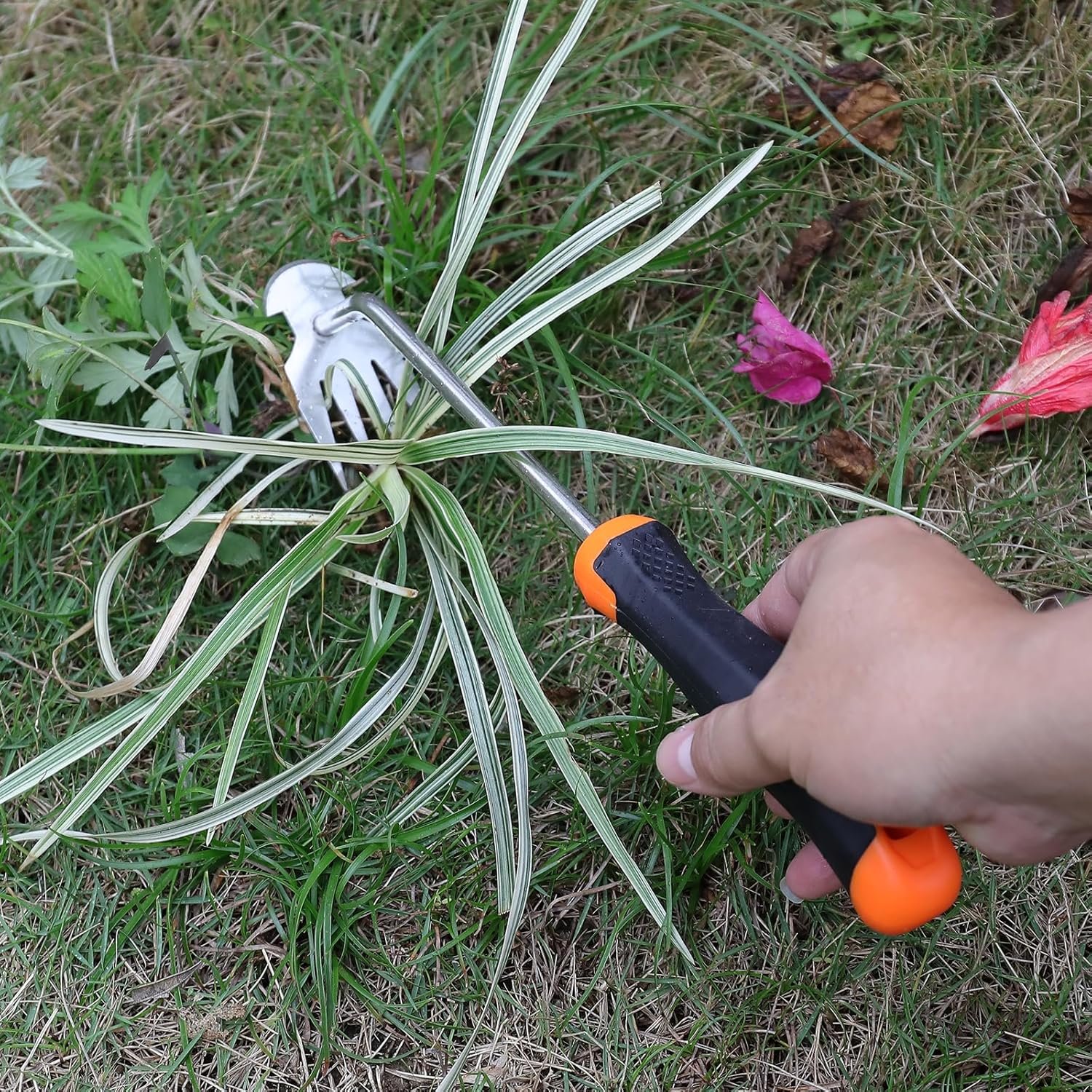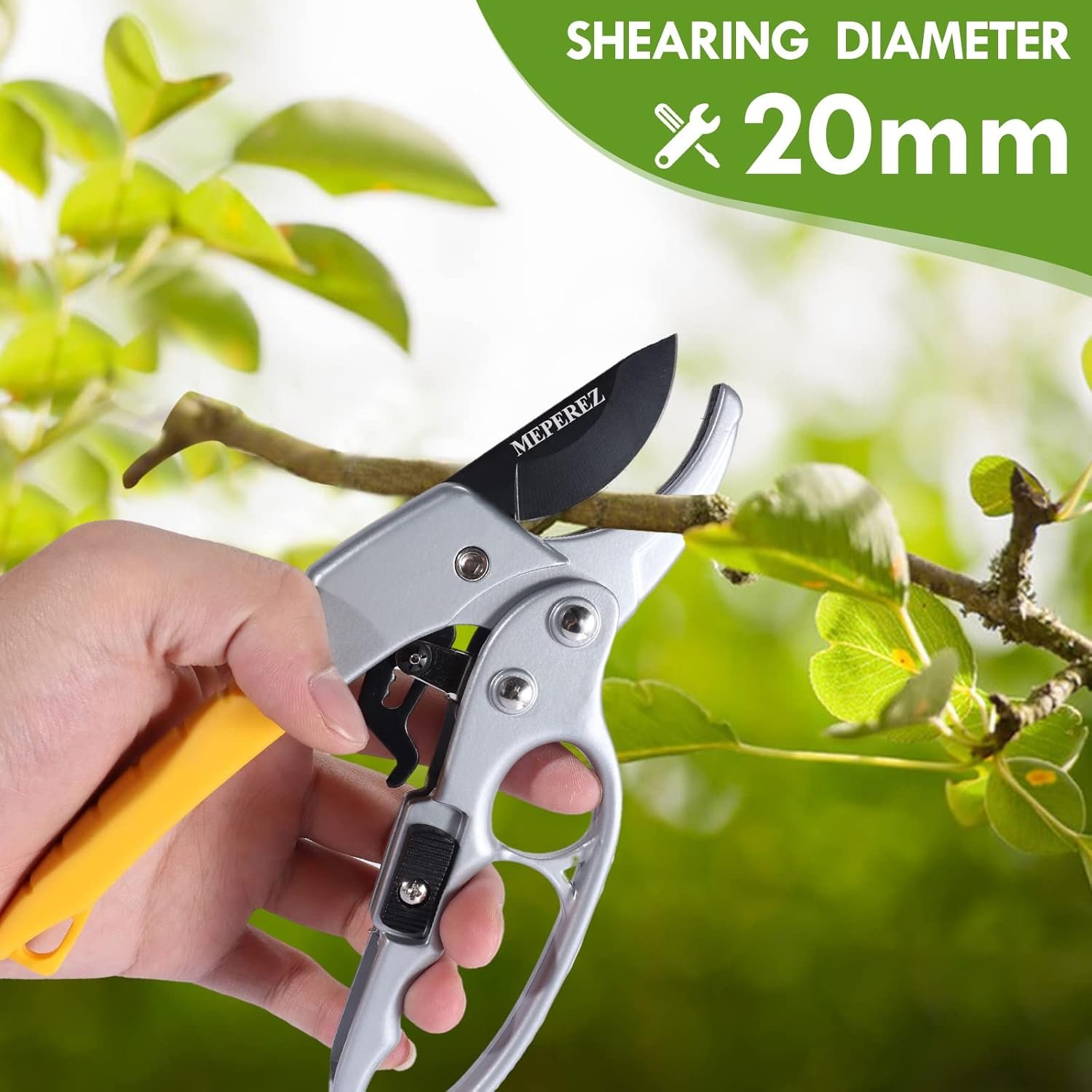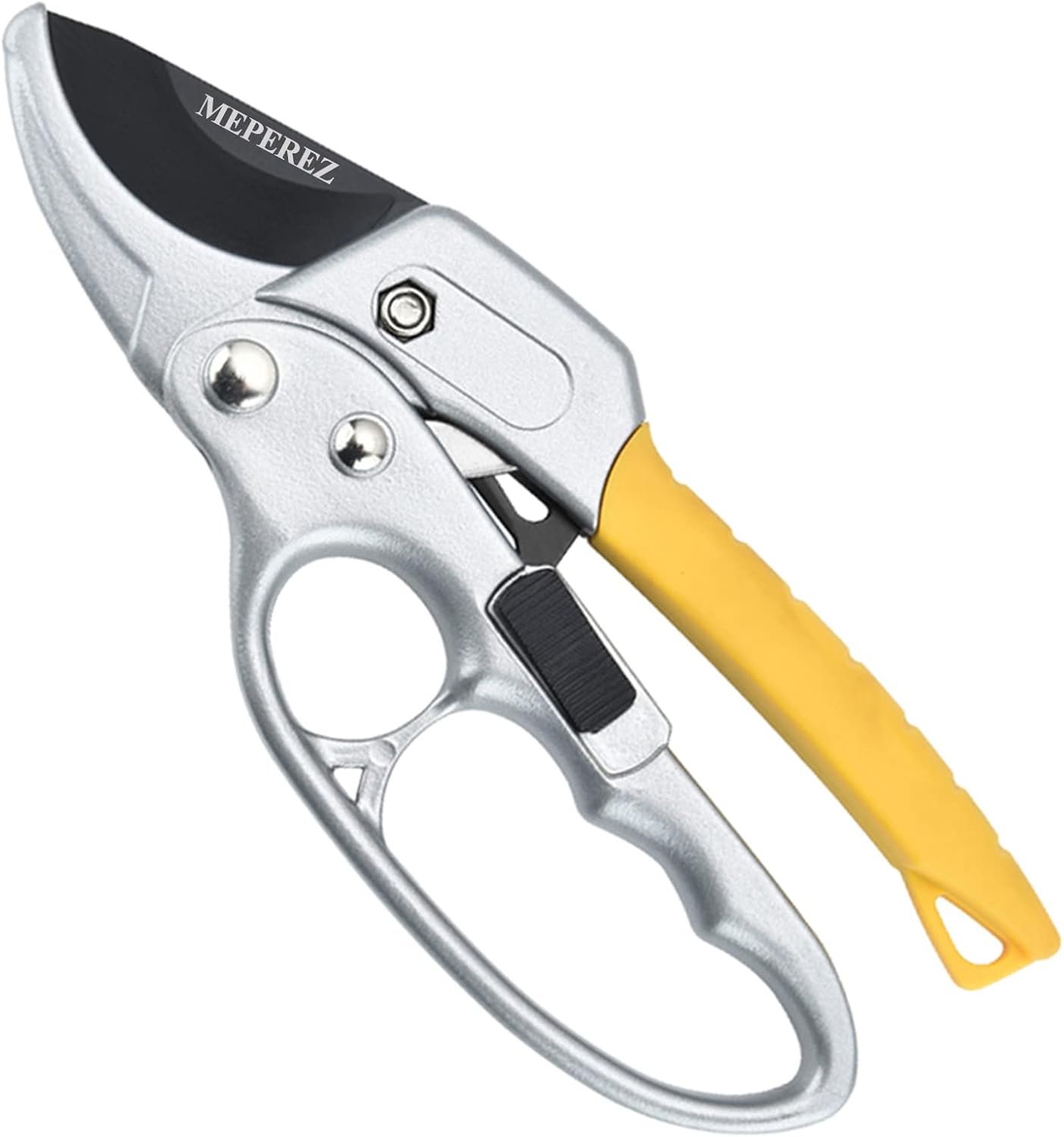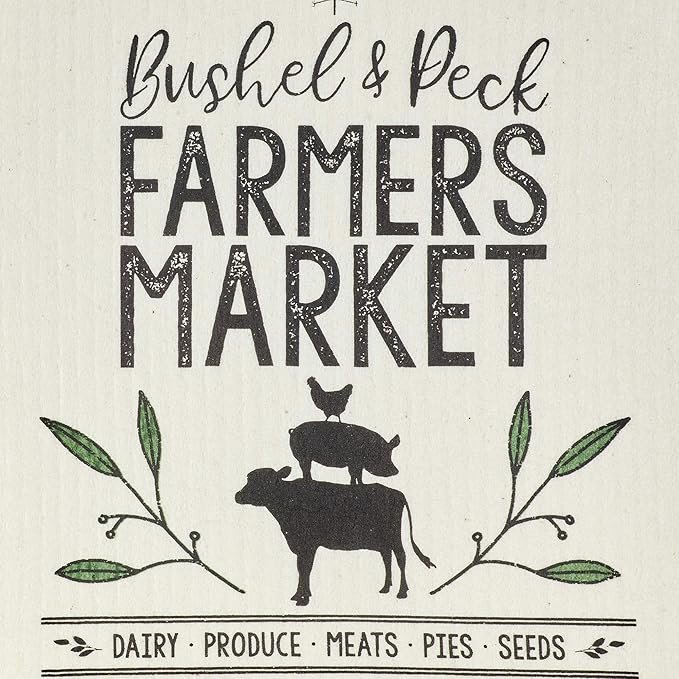Garlic is one of the most rewarding crops to grow at home. From its strong flavor to its health benefits, this kitchen staple is worth the wait. But knowing exactly when to harvest garlic can be tricky. If you pull it too early, the bulbs will be small and lack flavor. If you wait too long, they may split or rot in the ground. This guide will walk you through the best signs, timing, and tips for harvesting garlic perfectly. Garlic often grows alongside onions. See our guide on when to harvest onions for more tips.
Table of Contents
ToggleHow to Know When Garlic is Ready to Harvest
Garlic is usually ready 7–8 months after planting, depending on the variety and climate. The key signs include:
-
Yellowing Leaves: When the bottom 3 4 leaves turn brown while the top leaves remain green, it’s time.
-
Bulb Size: Gently dig around a plant and check the bulb it should be well-formed with distinct cloves.
-
Firm Skin Wrapping: Bulbs should feel tight with papery skin covering the cloves.
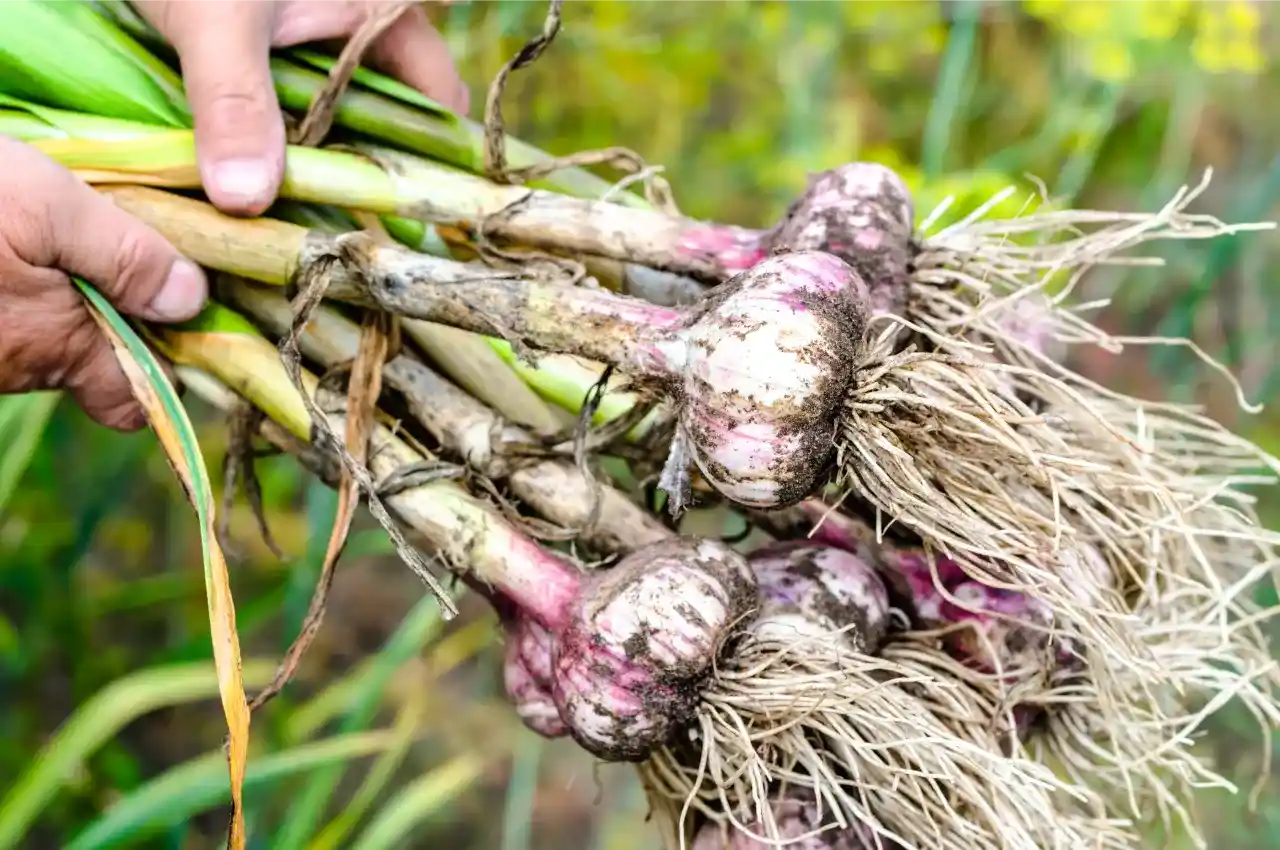
When NOT to Harvest Garlic
Avoid harvesting garlic when:
-
Too Early: If all leaves are still green, bulbs will be tiny and underdeveloped.
-
Too Late: If most leaves are brown and dry, bulbs may split or lose storage quality.
-
After Heavy Rain: Wet soil increases the risk of rot during curing and storage.
Maturity Points for Garlic Plants
Knowing the right signs of maturity helps you pick garlic at its best flavor and storage quality. Here are the key points to look for:
-
Leaf Count: Garlic is ready when about ⅓ to ½ of the leaves have turned yellow or brown, while the top leaves remain green. Each green leaf represents a protective wrapper around the bulb.
-
Bulb Size: Gently dig around one plant to check. Mature garlic bulbs will feel firm, plump, and well-formed, with distinct cloves visible under the skin.
-
Neck Softness: The neck (the area above the bulb) should start to soften and weaken, showing that the plant has stopped growing.
-
Skin Thickness: Mature garlic will have papery, dry skin layers forming around the bulb, which help in long-term storage.
-
Timing: Depending on the variety, garlic usually matures 7–8 months after planting (planted in fall, harvested in late spring to mid-summer).
| Garlic Type | Appearance at Maturity | Days to Maturity | Harvest Season |
|---|---|---|---|
| Softneck Garlic | Bulbs with tight, papery white skins; ⅓–½ leaves yellow | 90–120 days | Late Spring – Early Summer |
| Hardneck Garlic | Bulbs firm with visible clove shapes; flower stalk (scape) fully curled | 100–130 days | Early – Mid Summer |
| Rocambole (Hardneck) | Bulbs with loose skins, rich flavor; leaves mostly yellow but top still green | 100–110 days | Early Summer |
| Porcelain (Hardneck) | Large bulbs with 4–6 big cloves; outer skins papery | 110–130 days | Mid Summer |
| Artichoke (Softneck) | Multi-layered cloves; outer skins dry and papery | 90–110 days | Late Spring – Early Summer |
| Silverskin (Softneck) | Small, tight cloves; bulb wrappers papery and shiny | 110–130 days | Mid – Late Summer |
| Elephant Garlic | Very large bulbs; ⅓–½ leaves brown, skins firm | 150–180 days | Mid – Late Summer |
| Creole Garlic | Purple-streaked wrappers; cloves well defined | 120–150 days | Mid – Late Summer |
Pro tip: Don’t wait until all the leaves dry out, or the cloves may split and lose storage life.
Best Time of Day to Harvest Garlic
The best time of day is morning, after the dew has dried but before the afternoon heat. Avoid harvesting in wet conditions as damp bulbs take longer to cure.
How to Harvest Garlic Properly
-
Loosen Soil: Use a garden fork to gently loosen the soil around the bulbs.
-
Pull Carefully: Grasp the base of the plant and pull it straight up.
-
Shake Off Dirt: Do not wash—just brush off excess soil.
-
Cure Immediately: Hang or spread bulbs in a dry, airy place for 2–3 weeks.
What Happens if You Harvest Too Early or Too Late
-
Too Early: Small bulbs, poor flavor, and short shelf life.
-
Too Late: Bulbs split open, skins peel, and storage life decreases.
How Often to Harvest Garlic (Indoor vs. Outdoor)
-
Outdoor Garlic: Harvest once per year, usually in late spring to mid-summer, depending on when planted.
-
Indoor Garlic (pots/containers): Harvest slightly earlier (6–7 months), as soil dries out faster and growth cycles are shorter.
Storage Tips After Harvesting Garlic
-
Curing: Dry for 2–3 weeks in a shaded, ventilated area.
-
Trimming: Cut roots and stems after curing.
-
Storage Conditions: Keep in a cool (60–65°F / 15–18°C), dry place with good airflow.
-
Avoid Refrigeration: Cold temps cause sprouting.
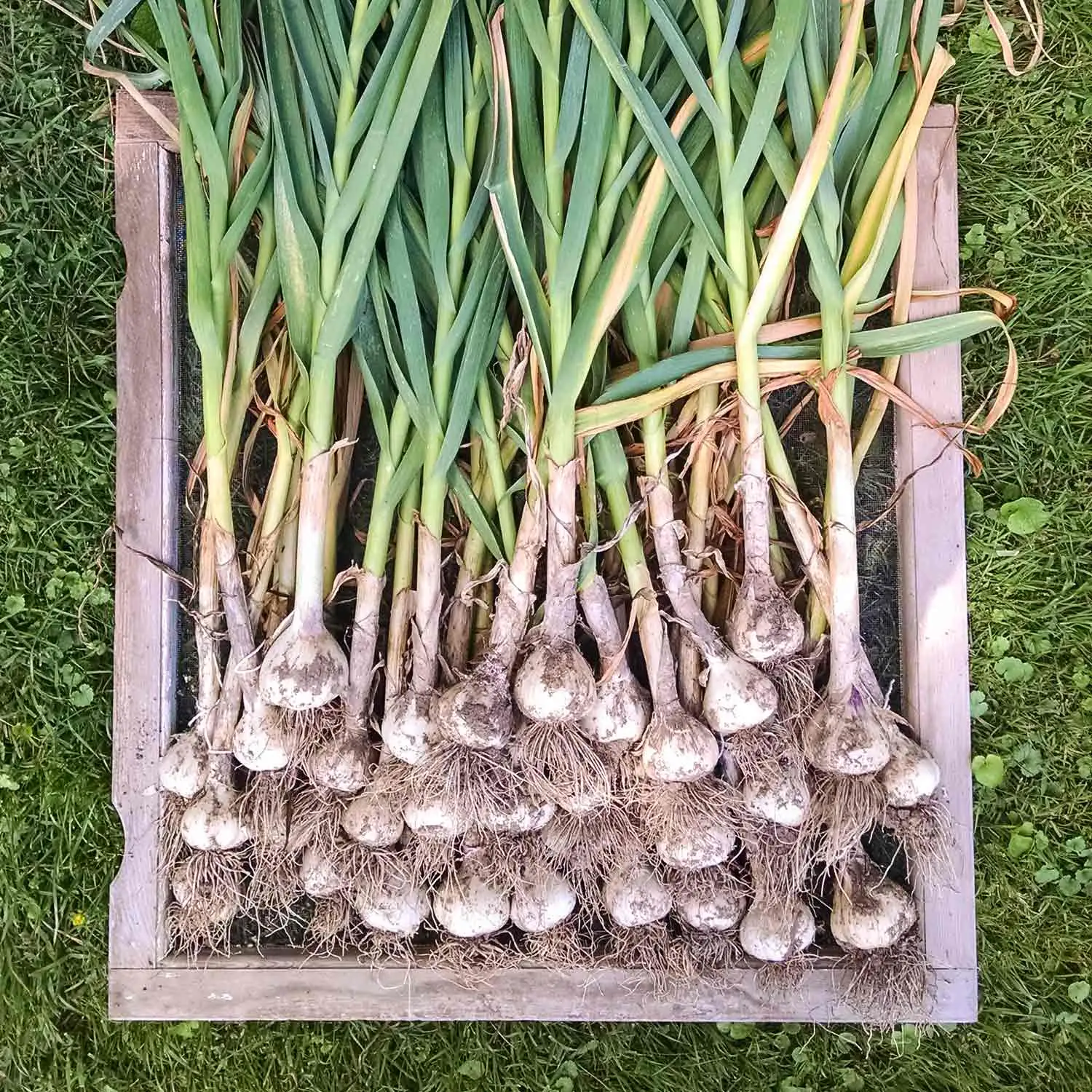
Best Practices for Stronger, Tastier Garlic
-
Plant in Well-Drained Soil: Garlic dislikes waterlogging.
-
Use Mulch: Helps control weeds and retain soil moisture.
-
Fertilize Early: Nitrogen-rich fertilizer in spring supports healthy bulb development.
-
Rotate Crops: Avoid planting garlic in the same spot each year to prevent disease.
Final Words
Knowing when garlic is ready to harvest makes all the difference between small, weak bulbs and large, flavorful ones. Watch the leaves closely, harvest at the right stage, and cure properly for long-lasting garlic that tastes amazing in every dish.
FAQs
1. How many months does it take for garlic to mature?
Usually 7–8 months, depending on the variety and climate.
2. Can I eat garlic harvested too early?
Yes, but the flavor will be mild and bulbs won’t store well.
3. Should garlic be harvested before or after flowering?
Before. Once garlic sends up a flower stalk (scapes), it diverts energy from bulb growth.
4. How do I know garlic is overripe?
When most leaves are dry and bulbs split open in the soil.
5. What’s the best way to store garlic long-term?
After curing, keep in mesh bags or baskets in a cool, dry place.

